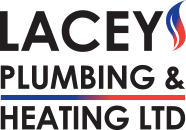How to Inspect Your Commercial Plumbing
Commercial plumbing systems can be extremely complex, meaning regular inspections need to be completed.
Get a Quote Request a CallAt Lacey Plumbing & Heating, we are specialists in both domestic and commercial plumbing. Whether you have a plumbing emergency, planned maintenance or need your annual gas safety checked, we can do this quickly and efficiently to keep your workplace running smoothly.
Can you inspect your commercial plumbing yourself?
Having a good understanding of your commercial plumbing is a great idea, since you will know which areas to inspect if there does appear to be an issue.
However, while it is useful to have this knowledge, we always recommend enlisting the help of a professional plumber to come and inspect your buildings properly, as there may be some underlying issues that you might not be able to spot.
Should you have a plumbing maintenance checklist?
Yes, when you own or manage a commercial property, it is vital that you have a plumbing maintenance checklist that is completed every so often.
Common issues to include on your checklist are:
- Burst or leaking pipes – Leaks are one of the most common plumbing problems and signs of a leak include damp, mildew, water spots, mould and puddles of water.
- Drains and sewers – Check the flow rate of your drains. If it appears to be slow, there may be a blockage somewhere.
- Corrosion – Signs of corrosion will be visible on pipes, as well as the presence of limescale around taps.
- Water pressure – Water pressure will vary depending on the type of building you own, however, it should usually be no higher than 80 psi and no lower than 40 psi.
- Boiler servicing and heating checks – The hot water in your building should be inspected for proper temperature and any apparent leaks.
How to inspect your buildings’ commercial plumbing
To get you started on how to inspect your building’s commercial plumbing, follow our handy guide below.
Understand your plumbing
As we’ve mentioned, understanding your building’s plumbing can be extremely helpful when it comes to inspecting it. Residential and commercial plumbing can be drastically different, so it’s important not to assume you know what you’re doing just because you know your plumbing at home.
If you’ve had a building inspection, you should be aware of the type of piping built-in and if there are any previous concerns that needed attention. During routine checks with a plumber, it’s worth asking them questions about the plumbing just so you’re aware of any areas that could be a potential problem.
Know what problems to look for
Just because you can’t see the plumbing, it doesn’t mean there aren’t any underlying problems. It’s important to be aware of all the telltale signs of faulty or old plumbing.
Using your plumbing maintenance checklist, you should be checking all areas in which an issue could arise including pipes, valves, water heaters and drains. Finding things like leaks, rust, bad smells and blockages are all signs that there is a problem somewhere in the plumbing.
Have the correct tools
While you don’t need the most expensive tools, having a few of the basics are a good idea, just in case anything happens.
A pipe wrench, screwdriver, tap packing and some washers will help you to loosen and tighten fixtures, and manage leaks. Having a good quality sink snake is another useful tool that will allow you to break up clogs in your drains.
Research tutorials
Using Youtube is a great way to get simple step-by-step advice and guidance on how to repair plumbing issues. You can find a number of different tutorials on there for simple plumbing fixes, such as tightening pipes or unclogging toilets.
However, if you don’t think you’d be able to follow along with a tutorial or you don’t feel confident enough to tackle a plumbing problem on your own, you can call our team at Lacey Plumbing & Heating instead.
We have years of experience tackling domestic and commercial plumbing problems, and we are always happy to help where appropriate.
What to expect during a building’s plumbing inspection from a commercial plumber
A plumbing inspection from a commercial plumber involves a plumber completing an examination of all the relevant fittings and fixtures in your property. This includes the following:
- Checking existing plumbing fixtures
- Checking drains and supply lines for blockages
- Examining above ground plumbing, such as shut off valves
- Inspecting sinks, toilets and showers
- Looking at vent systems in bathrooms
- Looking at the water tank/water heater
- Inspecting the sump pump
This list is not exhaustive and many different plumbers will have a different set of procedures that they follow, so you may want to find out their inspection list before you commit to one.
Unit 11 Eton Business Park
Eton Hill Road, Radcliffe, M26 2ZS
Opening Times
Mon – Fri 8am – 5pm
Call Us Today
0161 879 4949